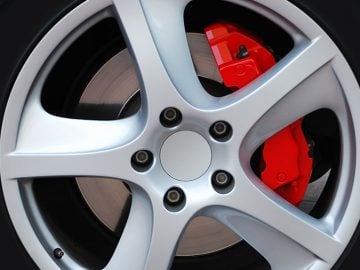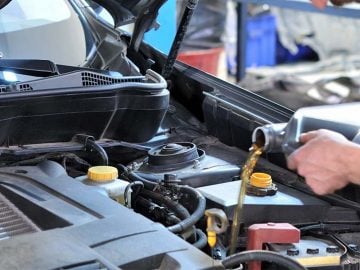
The following is an edited version of an open letter from Masterparts that was published by a major South Africa motoring magazine, in comment on a motor parts survey. Not one word in contradiction was ever heard.
Your article entitled “Motor Parts Survey” highlights the controversy that exists in some quarters between “genuine” and “non-genuine” parts, sometimes called after-market or replacement parts. It is interesting to note that it is always the car manufacturers who claim their genuine parts to be superior to all others and who constantly denigrate non-genuine replacement parts by, for example, calling them ‘pirate parts’. In this day and age, few product ranges can reasonably be classed as superior to all others with the obvious exception being “captive” items like certain body and suspension components, where no real opposition exists. It is common knowledge that a very high percentage of genuine parts sold by car manufacturers are the same as those sold in their original packaging and under their original brand names by independent parts distributors. Why do car manufacturers keep insulting their customer’s intelligence by claiming otherwise, when they make very few (if any) parts, with the exception of the body?
The fact that many non-genuine parts are manufactured from superior materials or are assembled with more robust components, is also ignored. There are also some original specifications that embody latent defects, which have been eliminated in after-market branded products. That non-genuine parts incorporate these enhancements is actually more prevalent than one would think, for a number of reasons too lengthy to mention here, yet the car manufacturers imply this is never the case.
Some of the spokesmen, who over the years have expressed their opinions on this subject, have never actually visited different component manufacturers. They have never seen the same product coming off the line and being put into different packaging and have little idea of the realities and differences between different brands or different component manufacturers. They rely on their title to establish their credentials and supposed expertise but to those properly trained and experienced, their product knowledge is a joke.
A senior member of a local car manufacturer uses the word “genuine” and “pirate” and states that a genuine part is manufactured to better specifications. He quite rightly separates the issue of “counterfeit” parts, which is an entirely different matter and one which I believe every reputable parts distributor abhors. An employee of another car manufacturer implies that genuine parts are made to higher standards and goes on to state that “genuine parts are parts packed in their original packaging”. A spokesman for the Automobile Association says that “genuine parts are those in a manufacturers packaging”, e.g. Volkswagen, whilst ‘branded’ parts are those carrying a manufacturers brand, such as NGK spark plugs.” It is interesting to note the wording used and particularly the Oxford dictionary definitions of those words, namely:
- “Pirate” a seafaring robber
- “Counterfeit” made in imitation, not genuine, forged
- “Original” existing from the beginning, not copied
- “Branded” a particular make of goods, an identifying trade mark
- “Genuine” really coming from its reputed source, not sham
It becomes obvious that the continued use by the car manufacturers of the word “pirate” is a deliberate attempt to belittle independent replacement parts distributors and is entirely out of context and in fact should not be used for the subject of motor spares. It is well known that the worst form of salesmanship is to run your opposition down, which does not say much for the character of those who persist with this blatant misnomer. It could be argued that the use of the phrase “genuine parts” is also a misnomer. If “genuine” means to come from its source, then car manufacturers parts must, by dictionary definition, be “non-genuine”. No car manufacturer is the actual source of the majority of the parts they distribute, except for captive items like body parts, which comprise a very small percentage of total parts sold.
Car manufacturers are resellers in exactly the same way as independent parts distributors are because the parts they sell come from independent component manufacturers. ‘Genuine parts’ seldom if ever carry the real manufacturer’s brand mark and as a result, emanate from an ‘unknown’ source. As they are supplied by more than one manufacturer, this hides the true origin from those customers who are brand conscious or loyal to products from specific countries for reasons of national pride. It, therefore, appears that according to dictionary definitions the independent parts distributor is actually the seller of “genuine parts” because their parts are branded and clearly identifiable as to both the source and the origin.




